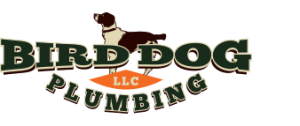Posted by Bird Dog Plumbing LLC on Jan 9, 2017 in Clogged Drain Longview TX, Commercial Plumbing Longview TX, Restaurant Plumbing Longview TX | 0 comments
Plumbers handle residential drain clogs every day, and they know what a hassle they can be. They’re so annoying, in fact, that many homeowners turn to harsh, chemical drain cleaners to rid themselves of the slow flows in their sink, shower and tub drains. Though a substantial amount of money is spent in the U.S. every year on these chemicals, plumbers know they can be a very bad choice for a number of reasons: 1 – Chemical Drain Cleaners Are Toxic A list of some of the standard ingredients in most chemical drain cleaners – bleach, lye and liquid glass, among others – will give you an idea of just how toxic these cleaners are. Of course, they have to be harsh in order to dissolve plugs of hair, grease, toothpaste, food and other drain debris. Unfortunately, these same chemicals that are designed to clear drains can also emit fumes that irritate human eyes, noses, throats and lungs. In addition to mucosal irritation, chemical drain cleaners can, when mixed with other household chemicals like ammonia, cause the corrosive mixture to burst from the drain, creating a burn hazard for anyone standing nearby. 2 – Chemical Drain Cleaners Are Not Environmentally-Friendly Even when chemical drain cleaners are used according to the directions and the clog and cleaner are flushed through your pipes and away from your home, they continue to be a hazard. Eventually, the drain cleaner residue will enter the ecosystem to contaminate groundwater, lakes and rivers, and according to Clemson University’s National Ag Safety Database, kill beneficial bacteria in municipal water treatment facilities that help to decompose waste. Chemical drain cleaner residue can kill fish and wildlife, and contaminate soil in and around lakes and streams. 3 – Chemical Drain Cleaners Are Bad For Plumbing If you’ve used chemical drain cleaners before, you know that it takes some time for them to sit in your drain before they make any kind of headway on your clog. While the cleaner is sitting in your drain, its destructive ingredients aren’t just attacking your clog, they’re also attacking your pipes. Even chemical cleaners that claim not to harm pipes do exactly that, whether your pipes are PVC or metal. Metal can corrode and PVC pipes can melt, especially if you use these types of cleaners often. 4 – Chemical Drain Cleaners Don’t Always Work Not all slow drains are caused by...
read more





